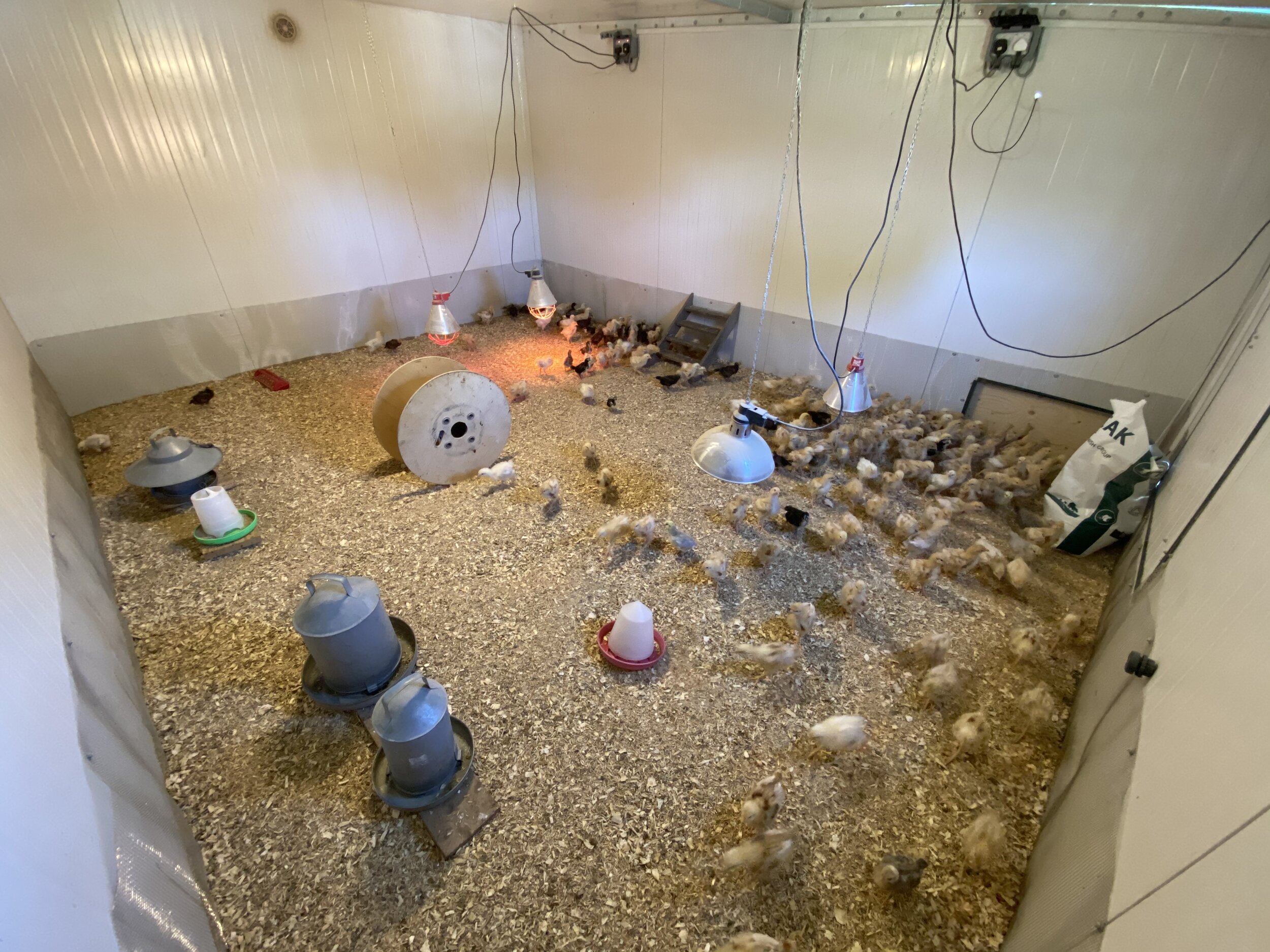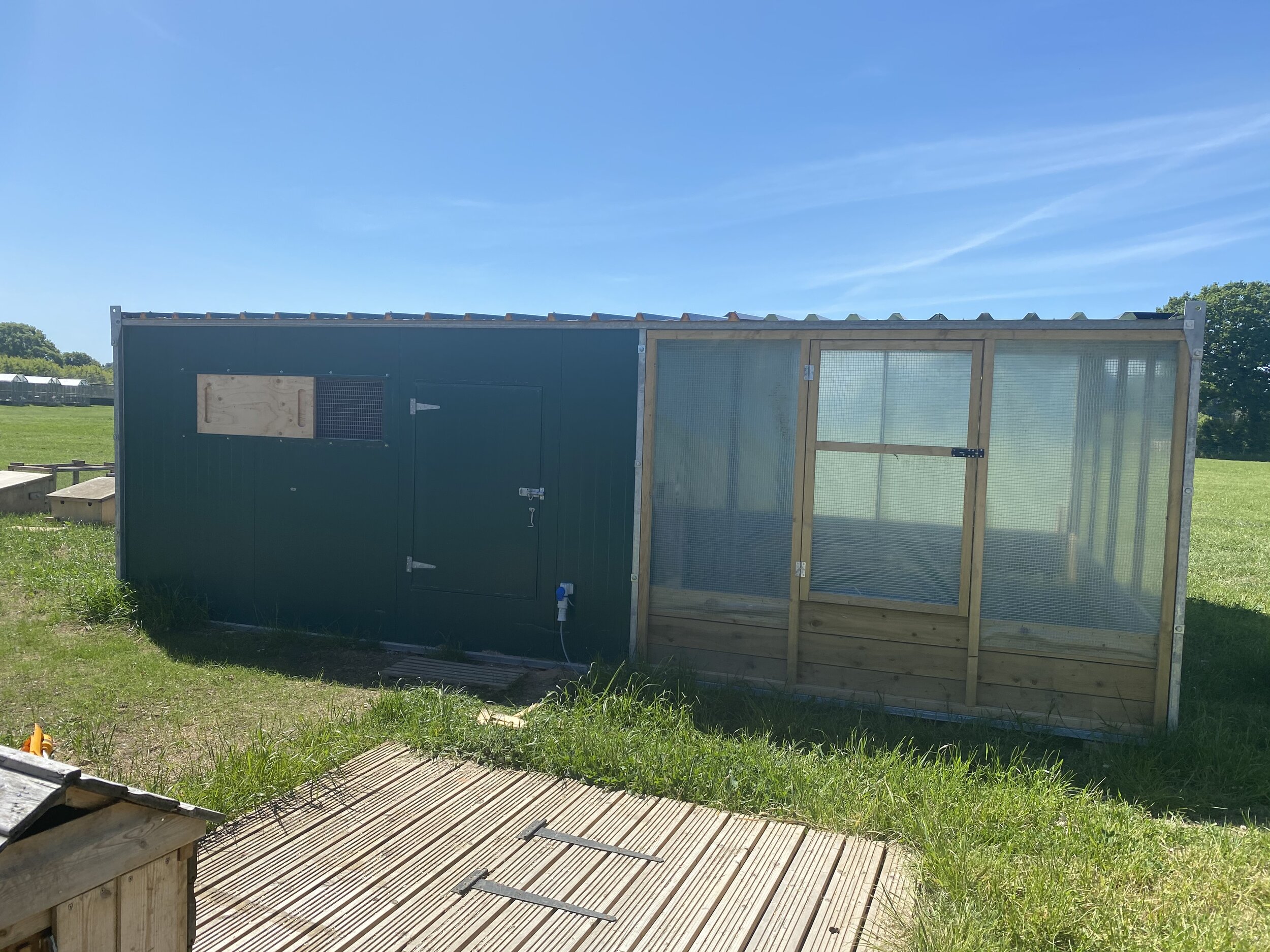Over the past 3 months we’ve been in transition to becoming organic. We’ve chosen the Soil Association to certify Higher Oak Farm, as we know that they have the highest standards for Organic farming and we wanted to ensure we were giving the livestock the best lives possible!
Why become organic?
We chose to convert to an organic farm because of the high standards that are expected to be met. When customers purchase organic eggs, they can be certain that the hens are well cared for and live the most natural life that they can, and they know this without even seeing the farm itself. We pride ourselves on the care that we give our birds and the natural lifestyle that they lead, so it was a no-brainer for us to take the next step to be certified.
How long does it take to become organic?
It actually is a 2 year process for the whole farm itself to be classed as organic. It takes about 6 weeks for the birds and chicks to be classed as organic once they are kept to the organic standards and you’ve finished your conversion period. We can’t actually start selling the products as organic until you’ve been in conversion for 6 months minimum, but this is decided by the officer that is assigned to your farm.
What makes the birds organic?
So the hens are fed purely organic food that has been approved by the Soil Association. They have organic bedding in their runs and they are in a hen house that conforms to the organic standard. We have only a small number of hens per feeder and per water drinker, this allows the hens to have full access to the food without being pushed out the way by the more dominant hens. The girls have access to at least 10m2 per bird to roam all day, every day. It’s entirely up to them if they want to be out on the pasture or having a dust bath inside the house.
Although we’re converting to organic, the organic standards are designed for big corporate farms, who have thousands of hens for a short period of time. We’ve found some aspects of the conversion quite difficult, as we farm very differently to the massive farms. A lot of the standards are based on the process that most eggs farms use; which is to buy in 16 week old hens and raise them as organic for the 14 months that they are laying for and then they ‘clear’ the sheds after their production levels start to drop. Here at Higher Oak Farm, we do all aspects of the birds journey. We incubate, brood, grow and produce layers all on the farm. We’ve found it hard to find standards that would apply to the way we farm, the team at the Soil Association have been a massive help while we figure out the best way for us to meet their standards!
As their standards are meant for the big farms, regarding the number of hens per run, we tend to go with what we feel is best for the birds and what we are comfortable with. We have a brooding run that houses the chicks until they are 8 weeks old and off heat. According to the standards, laying hens only need to have access to the outdoors until they are 12 weeks old, but we feel that it’s more beneficial to the hens to have access to the outdoors from around 2-3 weeks. This allows them the feather up a lot quicker and better, it also means that they are using their natural instincts to forage for the bugs and grubs in the grass and ground which makes the birds themselves bigger and healthier. According to the organic standards, in our brooding run we’d be allowed 700 chicks in there until they are 8 weeks old. We personally feel that’s too many to have in one area for such a long period of time, so we’re allowing 300 in a brooding run at one time.
The inside of our brooding run.
Our brooding run.
Due to the Coronavirus pandemic, we haven’t had our first visit from the Soil Association, but we can’t wait for them to come and see how we keep the hens happy! If you’d like more information on what it takes to become organic, just send us an email and we’d be happy to chat to you about our journey.




